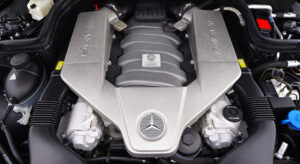Buying a used car can be a smart financial decision, but it’s essential to approach the process with caution and knowledge. This comprehensive guide offers ten essential tips to help you navigate the complexities of purchasing a pre-owned vehicle and ensure that you make a well-informed final decision.
1. Set Your Budget
Before you start browsing listings, determine how much you’re willing to spend on a used car. Consider not only the purchase price but also ongoing expenses like insurance, maintenance, and fuel costs. Setting a budget will help you narrow down your options and avoid overspending. Also keep in mind that buying with a private seller is usually all at once, while buying with a dealership will have options to pay over time with financing.
2. Research Reliability and Resale Value
Look into the reliability ratings and resale values of different makes and models. Websites like Consumer Reports and JD Power provide valuable insights into the long-term performance and depreciation of various vehicles, helping you choose a car that holds its value and requires minimal maintenance.
Suggestion: Difference Between 2024 Mazda CX 30 vs CX 5 – Which Is Better?
3. Check Vehicle History
Obtain the vehicle identification number (VIN) of any used car you’re interested in and run a comprehensive vehicle history report. Services like Carfax or AutoCheck can uncover crucial information about the car’s past, including accidents, flood damage, and odometer discrepancies. If the car had a previous accident and was not fixed properly, your car runs the risk of breaking down or getting into another accident due to faulty issues. In the event this does occur, contact a Charleston, WV car accident attorney.
4. Have the Car Inspected by a Mechanic
Before finalizing the purchase, have the used car inspected by a trusted mechanic. A professional inspection can identify hidden issues that may not be apparent during a test drive, potentially saving you from expensive repairs down the line.
5. Take a Thorough Test Drive
Schedule a test drive to assess the car’s performance, handling, and comfort. Pay attention to any unusual noises, vibrations, or warning lights and test features like brakes, steering, and suspension under various driving conditions. Make sure that you are meeting the car seller in a public location, ensuring your safety when buying a used car.
6. Consider Certified Pre-Owned (CPO) Options
Certified pre-owned vehicles undergo rigorous inspections and come with extended warranties, making them a reliable choice for buyers seeking added peace of mind. While CPO cars may be slightly more expensive than standard used cars, their quality and warranty coverage often justify the higher price.
Also Check: 6 Easy Steps To Buying A Brand-New Car (Experts Guide)
7. Negotiate the Price
Don’t be afraid to negotiate the price when buying a used car. Research comparable listings in your area to determine a fair market value and use this information to negotiate with the seller. Be prepared to walk away if the price isn’t right or if the seller isn’t willing to negotiate.
8. Review the Vehicle’s Title and Documentation
Examine the car’s title and accompanying documentation carefully to ensure that everything is in order. Look for any liens, outstanding recalls, or discrepancies that could complicate the transfer of ownership.
9. Factor in Ownership Costs
Beyond the purchase price, consider the long-term ownership costs of the used car, including insurance premiums, maintenance expenses, and fuel efficiency. Choosing a reliable and fuel-efficient vehicle can save you money on repairs and operating costs over time.
10. Trust Your Instincts
Finally, trust your instincts when buying a used car. If something feels off or too good to be true, it’s better to walk away and continue your search elsewhere. Remember that patience and due diligence are essential when making such a significant investment.
Conclusion
By following these ten tips, you can approach the process of buying a used car with confidence and ensure that you find a reliable vehicle that meets your needs and budget. With careful research, inspection, and negotiation, you’ll be well-equipped to make a smart and informed purchase decision.







